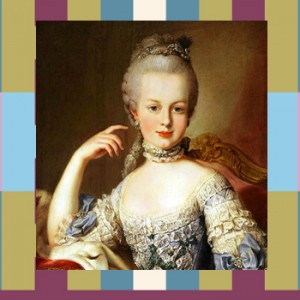Marie Antoinette — Tragic Princess
As a girl of 10, I was hardly interested in that do-gooder Nancy Drew. Sure, she was smart, clever, and resourceful. But still, where was the tragedy or the romance that, in my mind, was every woman’s destiny? My heroine was cut from a darker, more complicated cloth, and bathed in the blood of the French Revolution.
Admittedly, 10 was a difficult year. My parents had recently divorced, and I was not much more than snot, tears, and sadness. Tragedy was an after-school snack, a bedtime lullaby, a morning prayer; and like so many miserable girls before me, I found solace between a book’s hard covers —stories that took me, thankfully, out of time and place.
Just on the cusp of something I could not yet understand, as the small knots grew on my chest, I fell in love with Marie Antoinette. I must have picked the biography up, the name of which I no longer remember, at the school library.
In my girl’s mind, she seemed everything a woman should be: loved, reviled, beautiful, and doomed. Lying on my bed, I sobbed, heartbroken when she walked the scaffolding in the Place de la Concorde to meet the sharp blade of the guillotine.
But what struck me then, and strikes me still, was the grace with which she met her fate and the tricky path women must navigate to survive. I’ve since come to know that a woman’s worth, fate, and destiny need not be bound by tragedy, no matter how beautiful.
-Darlene Deas


This struck a chord in my heart when I read it. In such a short story, there are so many parallels to my own life and the lives of many of my best girlfriends. Thank you for such beautiful and sage advice, Darlene.